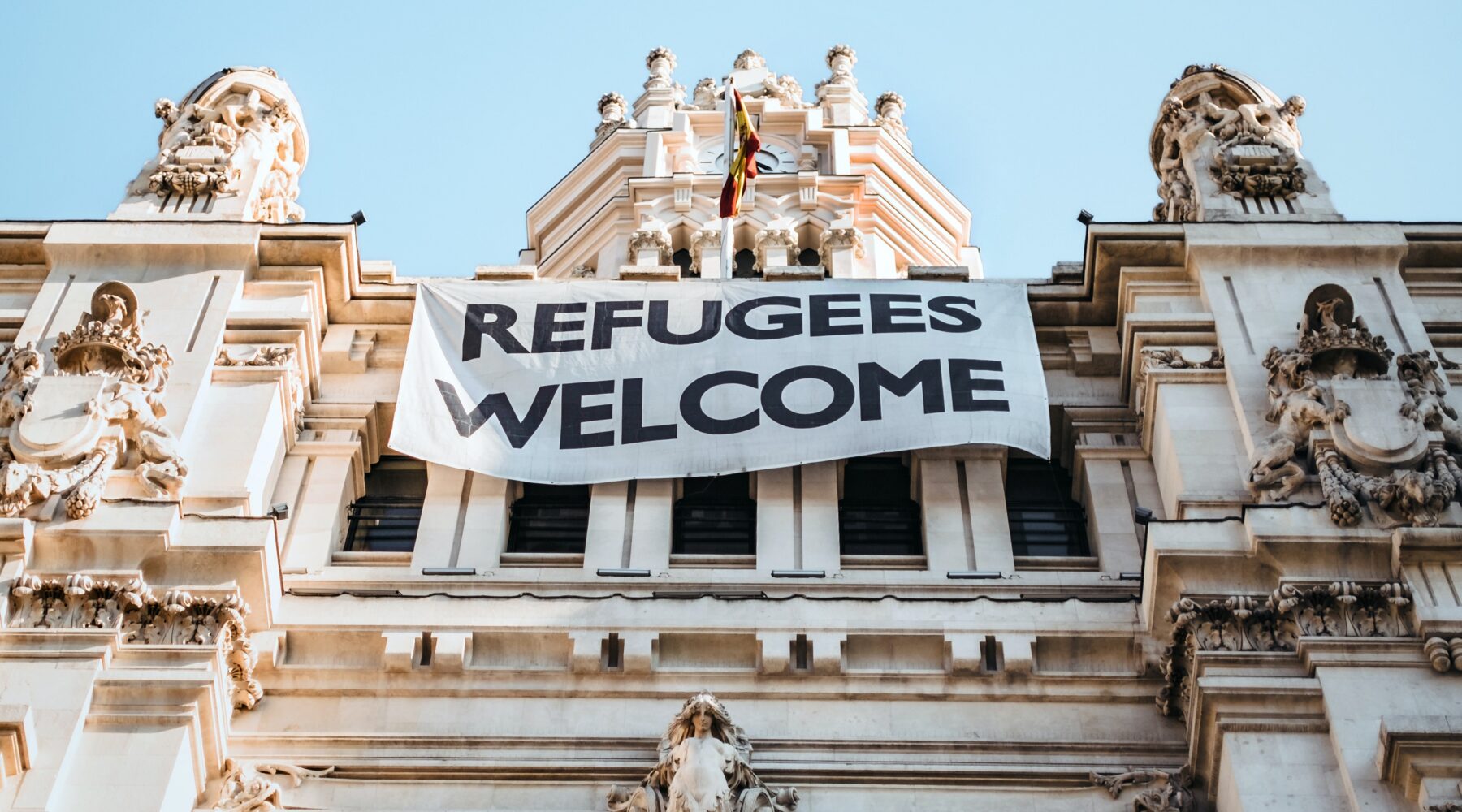
Humanists International Observes World Refugee Day
On June 20th, the world comes together to observe World Refugee Day.

On June 20th, the world comes together to observe World Refugee Day.
On this day, we recognise the resilience and courage of the many people who have been forcibly displaced by situations of conflict or persecution, frequently in violation of their right to freedom of thought, conscience and religion and freedom of expression. This day is also a chance for reflecting on how we can continue to mobilise towards building a more inclusive and tolerant world for refugees – one where their rights, needs, hopes and dreams are recognised, and their humanity is respected without question.
Attaining asylum status can be a lifeline for humanists trapped in countries where expressing non-religious views or renouncing religion is a crime under blasphemy, apostasy and ‘religious insult’ laws, or who might otherwise face harassment, violent attacks and persecution for being non-religious. Humanists-at-risk can face numerous obstacles during the asylum process, including the failure of immigration officials to understand some of the basic features of humanism. This happened to Hamza bin Walayat, a humanist fleeing from religious persecution in Pakistan in 2019. Hamza’s application for asylum was initially rejected by UK Home Office officials on the grounds that he failed to identify Plato and Aristotle as humanist philosophers. This decision was deeply flawed, not only because both philosophers identified as religious, but because it wrongly equated humanism with other religious beliefs which adopt the word of particular religious figures and texts.

Hamza bin Walayat and Andrew Copson
This year, the Covid-19 crisis has aggravated the challenges faced by refugees and internally displaced individuals. Refugee camps already suffer from lack of access to adequate health care, and very few have ICUs or ventilators on hand to care for Covid-19 patients. Measures to avoid community transmission of the virus, such as physical distancing and hand-washing, are near impossible to implement in such cramped settings. For the over 40 million internally displaced people who have fled their homes because of persecution, but remain trapped within their State borders, such as those in Darfur in Sudan or Idlib in Syria, the situation is even more concerning.
Under cover of Covid-19, States have intensified their policies of forced returns, denial of entry and illegal push-backs of refugees and asylum seekers. In Europe, there are growing reports of refusals to disembark rescued individuals at sea, leaving them stranded in unsafe boats for extended periods of time, and refusals to carry out search and rescues of capsized boats.The United States has used emergency legislation to deport children at the border with Mexico, with 600 minors expelled in April alone. In Greece, there have been reports of a sharp increase in violent actions toward refugees entering from the Turkish border, including acts of torture, arbitrary detention, sexual assault and violent push-backs by military forces (a policy that violates the international law principle of non-refoulement, as it involves the forcible return of a person to a country where they may face persecution without first assessing their claim for asylum). In response to the increase in border violence, more than 100 Members of the European Parliament have called for an investigation into violence and shootings by border guards at the Greek-Turkish border.
From the United States, to Europe, to Australia, conversations about migration and the refugee crisis tend to be characterised by historical amnesia towards the role countries in the Global North have played in fostering conflict, crime and poverty on other continents. Increasingly, this extends to their dismissal of the disproportionate historical responsibility they carry for the release of carbon emissions into the atmosphere and the creation of unstable environmental conditions leading many people in the world’s poorest countries to flee their homes and become climate refugees.
It is clear that politicians and civil society (whose views politicians tend to reflect) need to change their thinking to display more compassion and rationality when responding to the refugee crisis, and this includes interrogating their own moral responsibility for the root causes of global patterns of migration. For the present moment, it remains essential that we strongly oppose the erosion of the rights of refugees, and the increasing normalisation of policies of border violence, illegal detention and deportation that have taken root in the wake of Covid-19.